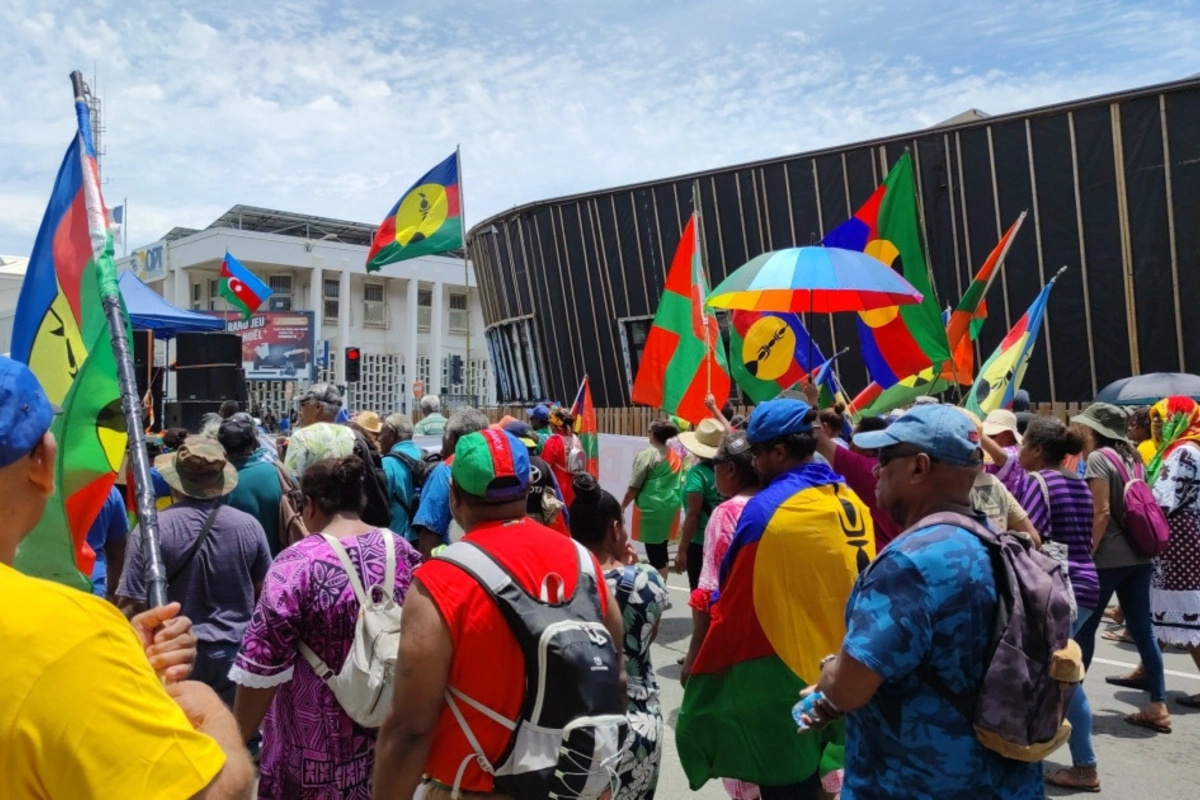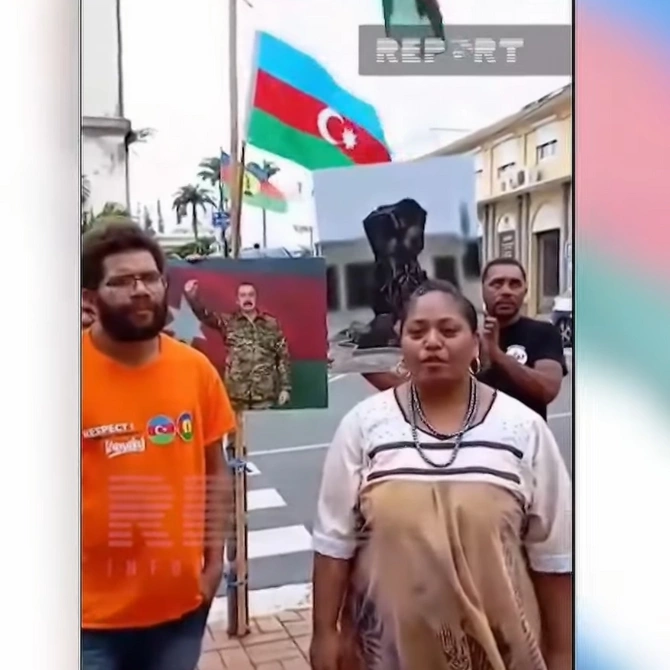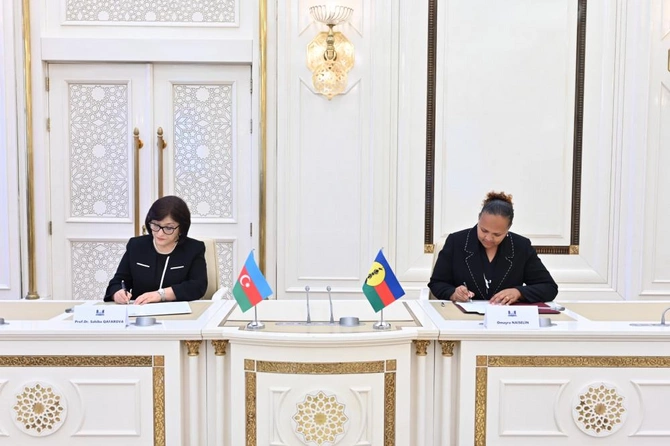
In one of the weirdest geopolitical twists of recent years, France has levelled some rather strange accusations against Azerbaijan. And all over a part of the world that most Azerbaijanis have probably never heard of—or hadn’t until recently.
Image: apa.az
Yesterday (23 May), French President Emmanuel Macron announced that Paris would no longer be forcing through the electoral reform legislation that has caused several days of protests in the Pacific islands that make up New Caledonia, a French-ruled territory lying over 1200km to the east of Queensland, Australia. Six people have died and many more have been wounded and since Wednesday, there had been a curfew in the capital, Noumea. But why on earth would we mention this in The Caspian Post? The reason is that, in a bizarre outburst from the French foreign ministry, Paris blamed Baku for stirring up the trouble.
The main issue is who can vote in elections and referenda—notably over possible independence. Currently, only indigenous Kanak people, or those who have lived in New Caledonia since before 1998, are eligible. Paris had said that in the spirit of democracy, it’s unfair to disenfranchise immigrants. Kanak nationalists particularly disagree and fear losing the right of self-determination if in-comers get to sway future votes.
In a remarkable statement

Blurry


Image: video screengrab
Politico quoted an anonymous French intelligence source as saying, “We’ve detected activities from Russia and Azerbaijan in New Caledonia for weeks, even a few months,” adding that Baku was “pushing the narrative of France being a colonialist state.”
The spokesperson for Azerbaijan’s Ministry of Foreign Affairs, Aykhan Hajizada, responded with a strong condemnation of “the French side’s insulting expressions against Azerbaijan” and urged Paris to “stop the smear campaign against Azerbaijan”—adding a reference to Darmanin’s claims that Baku had perpetrated massacres of Armenians. He suggested that France might better reflect on its “history of his country committing crimes against humanity toward local peoples and the brutal murder of millions of innocent people as part of its colonial policy.”
This was not the first time that Paris and Baku have traded harsh words over New Caledonia. Darmanin had made similar accusations in the French Parliament on 29 April, similarly rebutted by Baku. From France’s point of view, the latest upturn in undiplomatic barbs was possibly spurred by the signing of a Memorandum on Cooperation between the Milli Majlis (Azerbaijan’s parliament) and New Caledonia’s Congress. Though the wording talked rather blandly of “strengthening friendly relations between the peoples of the Republic of Azerbaijan and New Caledonia,” it’s likely that France eyes with suspicion any suggestion of other nations dealing with Noumea as though New Caledonia were already an independent country.

Image: meclis.gov.az
It’s likely that Baku’s interest in New Caledonia dates from March 2023, when Azerbaijan hosted a summit meeting of the Non Aligned Movement during which a member of a New Caledonan pro-independence group publicly called for “the whole world to support the[ir] liberation struggle.”
Whatever the truth behind France’s accusations, some pro-government news outlets in Azerbaijan ran stories slamming France’s moves in New Caledonia, accusing the French media of “suppressing images of violence and atrocities committed against the Kanak people” while calling for the “international community to condemn France's oppressive actions.”
There are two main reasons that politically aware Azerbaijanis might feel strongly about the New Caledonia issue. The simpler and most widely cited suggestion is that Baku remains angry with France for Paris’s perceived pro-Armenian stance on Karabakh. Some observers have gone so far as to suggest that France has been actively seeking to “thwart Anglo-American efforts [aimed at] normalizing relations between Azerbaijan and Armenia.”
However, a second factor to bear in mind is that Azerbaijanis are extremely sensitive on principle to the rapid granting of voting rights to settlers. This again has a Karabakh dimension—Azerbaijan would not want to concede that Armenians who had moved to Karabakh in the 1990s during the period of occupation might have any automatic right to be treated as full citizens in a vote[1]. So, in cases where settler rights are threatening the existing indigenous majority, Azerbaijan might see fit to make its views known. But that’s a very long way from explicitly stirring up violence and unrest.
[1] The fact that essentially the whole Karabakh Armenian population left en masse in September 2023 notwithstanding.
Share on social media